THE OFFICIAL NEWSLETTER OF THE NYU TANDON DEPARTMENT OF FINANCE AND RISK ENGINEERING



THE OFFICIAL NEWSLETTER OF THE NYU TANDON DEPARTMENT OF FINANCE AND RISK ENGINEERING



Dear Students, Faculty, and Staff,
I would like to thank each and every one of you for all of your hard work and dedication to the MSFE program this semester. We are very aware that our courses are highly demanding and that homework, evaluation, and projects can be challenging, but your commitment is what makes our program one of the best. A special thanks goes out to our staff members who keep the program running smoothly and effectively, and for always supporting the students’ needs.
This past fall,, we welcomed two full-time faculty, Assistant Professor Renyuan Xu and Assistant Professor Xin Zhang, who are top researchers contributing to our five new PhD courses accessible to those MS students wishing to deepen their training in the most advanced quantitative tools.
We also welcomed three new adjunct faculty members to our growing roster of industry professionals; Shonali Gupta, William Segal, and PaulGuillaume Fournié.
The Fall 2024 semester also introduced FRE’s first cohort of PhD students. Through the Electrical and Computer Engineering Ph.D. program, our training offers the necessary curriculum to address challenging problems relevant to financial engineering applications. I am especially excited to inaugurate this rigorous training.
Our MSFE students took top honors in the International Association for Quantitative Finance (IAQF) annual student competition, pitted against twenty-seven teams from twelve universities, for the ninth year in a row. Incredible!
Additionally, the FRE Department hosted a combined total of seven research seminars through the Columbia-NYU Financial Engineering Colloquium, the Peter Carr Seminar Series, and FRE Special Seminars. Thank you to all of our speakers for taking the time to share your work and expertise. We also thank the current MSFE students, alumni and faculty, our colleagues from other NYU departments, and our external peers for attending these events.
We also hosted the ACM International Conference on AI in Finance (ICAIF) in November and welcomed over 400 guests to the NYU Tandon’s Brooklyn Campus. This scholarly peer-reviewed conference brought together researchers from both academia and industry to share challenges, advances, and insights on the impact of Artificial Intelligence and Machine Learning in finance. Thank you to Assistant Professor Renyuan Xu, program co-chair of the ICAIF, for working tirelessly on this conference. Special thanks also goes to Assistant Professor Xin Zhang, Industry Assistant Professor Amine Aboussalah, FRE Program Manager Zahra Patterson, and all of our current students who volunteered at the conference. Thank you for making this conference a success!
Lastly, it’s my pleasure to congratulate Visiting Associate Professor Julien Guyon for being named “Quant of the Year” by Risk, the leading financial risk management magazine. Professor Guyon was selected for his overall contributions to modern quantitative finance, in particular volatility modeling. We are proud and lucky to have such an expert teaching one of the most up-to-date courses on volatility modeling.
I am looking forward to what the new year and semester will bring. We have much to celebrate, especially the NYU-Princeton Workshop on Future Electricity Grids and Energy Markets with Decarbonization on January 22-23 at NYU Tandon. These workshops brought together academics and practitioners in France and the US to discuss modern and future electricity production as grids transition to majority renewables and nuclear energy sources for purposes of decarbonization.
I wish you all a happy holiday and a prosperous new year! I look forward to seeing you all in the Spring.
Sincerely, Nizar
Touzi
The use of artificial intelligence in the financial world is not an entirely new phenomenon: since the 1980s, those working in trading and risk management have used simple models and algorithms. In more recent years, however, as computational power increased and massive datasets became available, researchers and practitioners have begun more seriously exploring the enormous implications for their field.
Five years ago, the Association for Computing Machinery (ACM) launched an annual International Conference on AI in Finance (ICAIF), aiming to bring together researchers from both academia and industry to share challenges, advances, and insights. ICAIF has since become the largest and most prestigious gathering of the burgeoning community of stakeholders, which includes members of government, regulatory agencies, financial institutions, and NGOs.
NYU Tandon had the honor of hosting the 2024 event, the first edition ever held in a university setting. (Previous conferences were mounted online because of pandemic restrictions, a hotel event space, and at J.P. Morgan, a major supporter.) Spearheading that effort was Assistant Professor of Finance and Risk Engineering Renyuan Xu, whose laurels include a J.P. Morgan AI Faculty Research Award and an NSF CAREER Award, and who had previously served as the conference’s program director.
• General co-chair DhagashMehta (BlackRock)
• General co-chair Guiling “Grace” Wang (New Jersey Institute of Technology)
• Program co-chair Senthil Kumar (Capital One)
• Program co-chair Hao Ni (UCL)
• Workshop co-chair Bo An (Nanyang Technical University)
• Workshop co-chair Yongjae Lee (Ulsan National Institute of Science and Technology)
• Workshop co-chair Zhen Zeng (JP Morgan)
Xu joined Tandon just this year, and although organizing a conference of this magnitude while concurrently settling into a new faculty post is a tall order, it was an unmitigated success. More than 600 attendees from 30 countries participated, with a significant majority (well over 400) traveling to Brooklyn to take part in person. More than 250 scholarly papers were submitted for consideration – a 70 percent increase from only two years before – and on offer were a dizzying array of experiences, including four plenary talks, 11 workshops, four tutorials, two sponsor presentations, 12 oral presentation sessions, and two poster sessions.
One of the attendees, Professor Tucker Balch of Emory University’s Goizueta Business School, a founding member of ICAIF, says, “Everyone at this conference will remember NYU Tandon and the intellectual discussions and good memories they shared here.”
Xu is insistent on sharing the credit for the event’s success. “It was a true team effort,” she asserts. “There are so many people who are owed thanks, including my department chair, Nizar Touzi; fellow faculty members Xin Zhang and Amine Aboussalah; and the entire FRE staff; as well as colleagues from around the world who agreed to co-chair and advise.”
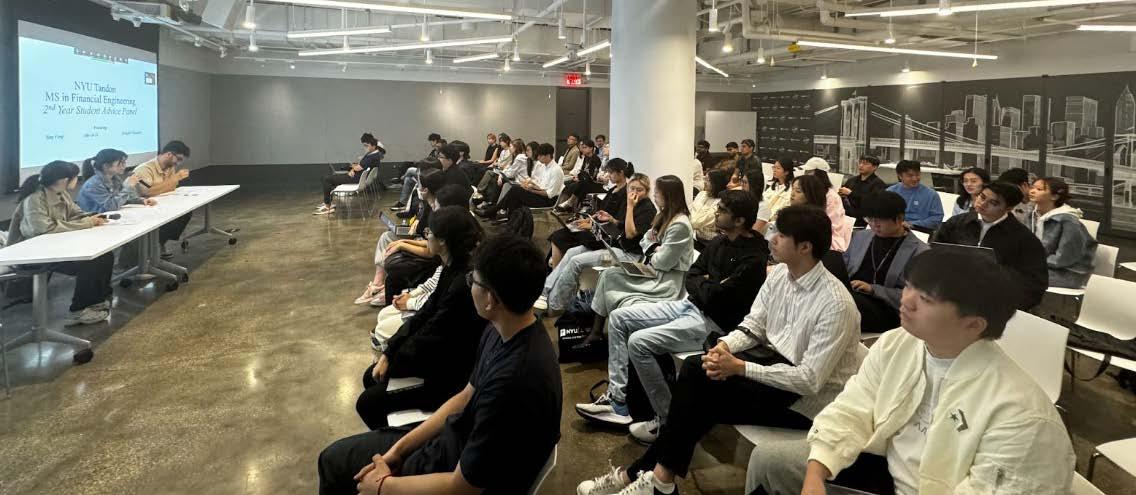
This fall, we were thrilled to provide our new cohort of students with a series of opportunities to connect with and hear from industry leaders about internships, enhance interview skills, and learn about the many roles available to FE students within the world of finance. Among the company visitors were big names such as Barclays, Citi, BNP Paribas, Societe Generale, Royal Bank of Canada, Neuberger Berman, NY Life, and Qube Resarch and Technology. These exclusive FRE company recruitment sessions give students the opportunity to not just hear about available internships tbut also speak to the leaders running cuttingedge projects and learn from junior-level talent who have recently navigated these programs successfully. This invaluable insight equips students with the knowledge and context they need to excel in their interview processes.
On Thursday, September 12th, MS in Financial Engineering students had the fantastic opportunity to gain insights at an advice panel featuring second-year students Muyan Li, Hrikshit Raj Chauhan, and Ying Feng. This engaging session covered a range of topics essential for success, including application strategies, networking tips, and interview prep
tools and techniques. The panelists also shared recommendations on the most helpful coursework to align with some common career goals. The session not only provided practical advice but also fostered new connections among the MSFE community.
Beginning in Summer 2024, students participated in a three-phase career introduction workshop series led by Career & Industry Relations Director Sara DeLusant and Interim Career Placement Director Dr. Tamar Hofer. The sessions covered essential skills such as navigating the FRE career systems, FRE recruiting processes, creating resumes, developing elevator pitches, and effective networking. These detailed sessions are intended to equip students with the tools needed for career success right out of the starting gate.
As fall recruiting presentations wound down, we shifted our focus to sharpening interview skills. On October 15th, DeLusant led an Interviewing Best Practices session
focused on effectively tackling common interview questions. Students gained an understanding of what employers seek to uncover about candidates through common behavioral questions. This workshop equipped participants with the strategies needed to shine in the quant and risk interview processes.
FRE Resources hosted another successful FRE alumni advice and networking session on November 19, 2024! This panel focused on mastering technical interview preparation, offering students actionable insights into navigating the challenges of the job market. Key topics included buy-side vs. sell-side roles, valuable certifications to enhance your resume, goto preparation resources, and more.
A special thank you to our distinguished alumni panelists — Haojie Jing, Siyu Ye, Michael Lin, and Tinghao Li — for delivering an insightful discussion and leading an engaging breakout session. Participants had the unique opportunity to network directly with the panelists and gain personalized advice on advancing their careers.
We’ll leave you with some words of wisdom from Haojie Jing, Class of 2015, on navigating this journey:
“You are responsible for filling the gaps in your skillset, and you have to customize your own growth roadmap. Learning and testing are two different things… it’s critical to use resources in the right way.”
Thank you to everyone who attended and contributed to making this session a success! Stay tuned for future events designed to connect our students with industry leaders and alumni.

Renyuan Xu
Assistant Professor of Finance and Risk Engineering
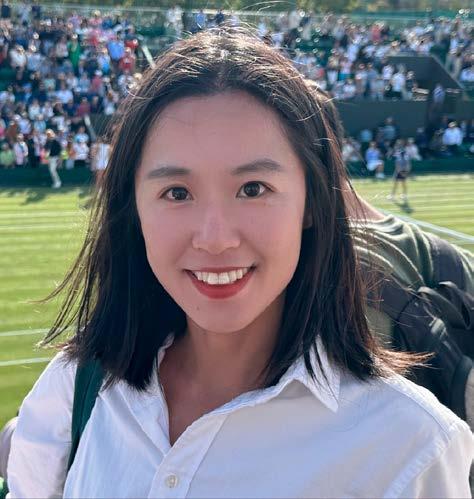
Renyuan Xu has always been passionate about using stochastic analysis and probability to quantify uncertainties and improve individual decisionmaking. Her research journey began at UC Berkeley, where she pursued her Ph.D. and focused on the mathematical modeling and equilibrium analysis of stochastic
systems with large populations, leveraging the powerful concept of mean-field approximation originating from physics.
After graduating from UC Berkeley, Xu became a Hooke Research Fellow at the University of Oxford. There, she broadened her research interests and worked on topics related to decisionmaking and risk analysis in complex financial markets, as well as machine learning theory through the lens of stochastic analysis.
Before joining NYU, Xu spent three fruitful years at the University of Southern California as a Gabilan Assistant Professor, collaborating with students and colleagues with different domain expertise. During this period, she developed an interest in interdisciplinary methodologies that integrate applied probability, statistics, and optimization. Her work laid the theoretical foundation for high-stakes decision-making problems in modern large-scale systems, with applications in financial markets, energy systems, and e-commerce platforms.
Renyuan Xu has received several prestigious awards, including the 2022 J.P. Morgan AI Research Faculty Award, the 2023 SIAM Activity Group on Financial Mathematics and Engineering Early Career Award, and the 2024 NSF CAREER Award. Since 2021, she has been co-organizing the World Online Seminar on Machine Learning in Finance. She also served as the program co-chair of the 3rd ACM International Conference on AI in Finance (ICAIF) in 2022 and as the finance area chair of the Oxford Machine Learning Summer School in 2022 and 2023.
Xin Zhang Assistant Professor, Finance and Risk Engineering
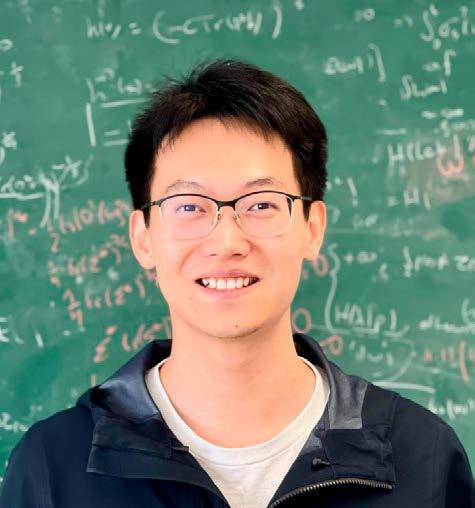
Last year, when Nizar Touzi became the new chair of NYU Tandon’s Department of Finance and Risk Engineering (FRE), his vision included making the School — already home to one of the most rigorous and highly regarded quant master’s programs in the nation — an important hub of applied financial mathematics research.
With Xin Zhang’s arrival as an assistant professor, that vision is another step closer to reality.
Zhang, who previously worked in the University of Vienna’s Department of Mathematics, under Professor Mathias Beiglböck, is focused on optimal transport, stochastic analysis and control, and viscosity solutions for nonlinear partial differential equations. And while those topics may seem esoteric to a layperson, they have practical importance in the realm of quantitative finance. (For example, optimal transport theory, which is used to measure the distance between two distributions, can help finance professionals build calibrated models with parameters consistent with market observations.)
At Tandon, he is teaching a course in Dynamic Optimization under Strategic Interaction, which will touch upon game theory, strategic decision-making, duopolistic markets (when two companies dominate, such as in the case of Visa and MasterCard), production of exhaustible resources, mean field control, and a host of other topics.
He cautions that prospective students should have a good knowledge of probability theory and calculus, as well as a basic familiarity with stochastic processes, but is confident that anyone admitted to FRE’s program will be well-equipped to tackle it.
Zhang earned his Ph.D. in Mathematics from the University of Michigan, Ann Arbor, in 2021, and has a string of laurels to his credit, including first-place finishes in multiple mathematics competitions in his native China, a Rackham Predoctoral Fellowship Award, and a Sumner B. Myers Thesis Award at the University of Michigan. He is excited to be working within FRE. “If you are involved in the world of financial engineering, you know the name Nizar Touzi,” he says, “so I feel very honored to have a professorship in his department.”

Q: Could you start by sharing about your background in finance and your current research focus?
I work at the intersection of AI and finance, focusing on two main areas. First, I design data-driven decision-making methods for trading, particularly in the credit market, where data scarcity and lack of transparency pose challenges. Second, I work on generative AI, such as developing neural network architectures to simulate realistic financial scenarios. These simulation methods help improve risk management of strategies and test stability of financial systems.
Q: What makes the credit market particularly challenging compared to other financial markets?
The corporate bond market operates over-the-counter, meaning there is no centralized order book like in equity markets. It is less liquid, less transparent, and harder to gather comprehensive data. Many bonds trade infrequently, and transactions are sometimes unreported. The lack of centralized interactions further complicates using data-driven approaches. However, the market’s size and significance present substantial opportunities for improvement.
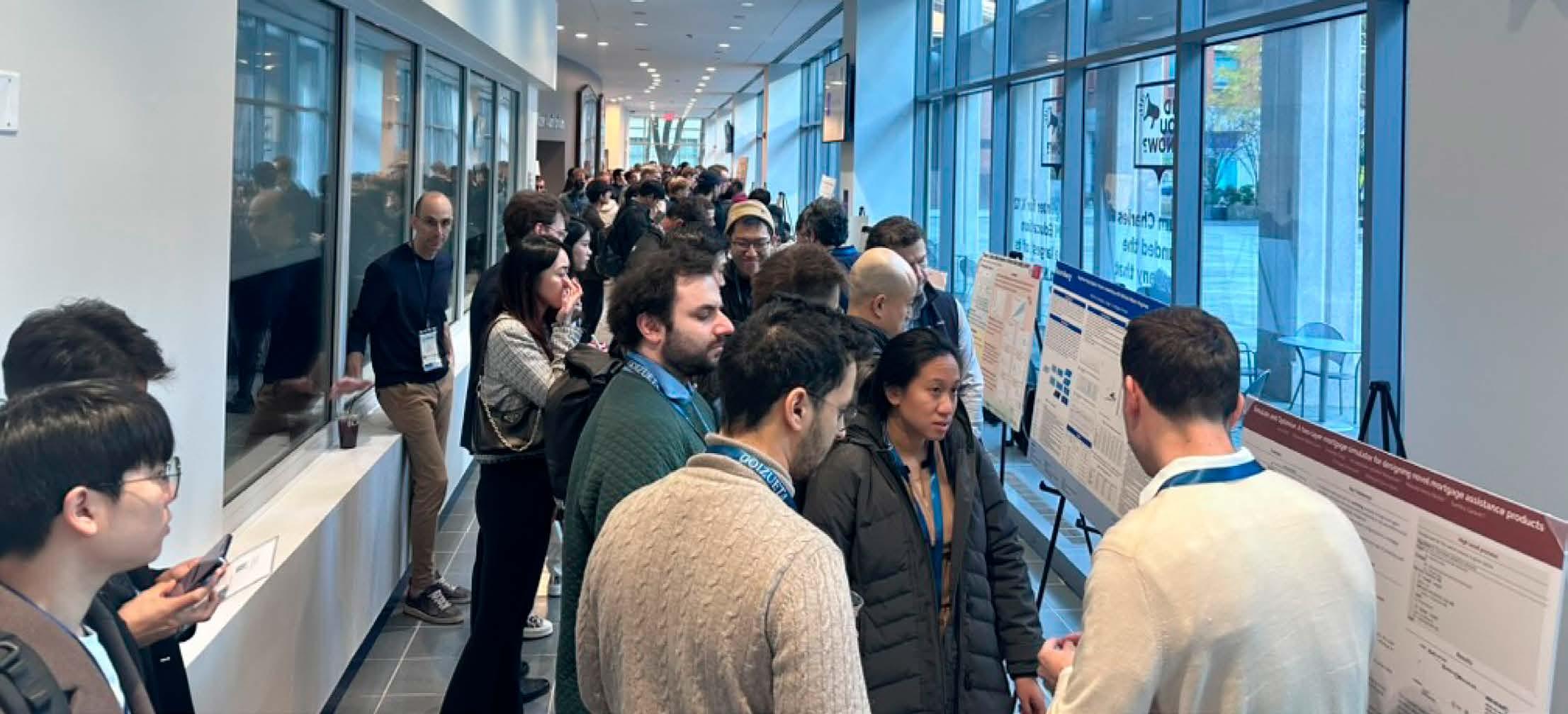
Q: Does this challenging environment make the credit market ripe for AI applications?
Absolutely. The aim is to make the most of the available data in this market while addressing the limitations of standard machine learning approaches. In such a challenging regime, domain knowledge and mathematical models should be employed to describe certain aspects of the data, complemented by machine learning tools to capture aspects for which theoretical insights are absent. This requires a deeper understanding of the market and careful alignment of AI models to ensure they are both effective and practical.
Q: What are the key challenges in developing AI models for the credit market beyond data availability?
Combining technological advancements with deep financial domain knowledge is critical. Ensuring that algorithms are trustworthy and have a solid mathematical foundation is equally important. This foundation helps diagnose and address issues when they arise, ensuring the models remain robust and reliable in practice.
Q: Can you share an example of your recent work in this area?
We recently developed a multitask dynamic pricing algorithm for the credit market. Since corporate bonds often have limited individual data, we leveraged the structural similarities among bonds from the same company or sector. Our method pools data to create a meta model, which is then fine-tuned for individual bonds. This approach addresses the small data problem effectively and represents some of our most recent research, completed just last month.
Q: What is the ultimate goal of developing these AI models for the finance industry?
The overarching aim is to uncover the underlying information and structures in financial data. Traditional models work well in simpler systems but struggle with the complexity of real-world financial markets. AI can help us better understand and model these complexities, ultimately supporting improved decisionmaking and risk management.
Q: Could you tell us about the recent AI and Finance conference you helped organize?
The International Conference on AI in Finance focuses on the promising role of AI in addressing challenges in our field. This is the first time the conference has been hosted by an Academic institution, so we consider it a huge honor for the school and our department. The community has grown rapidly, with doubled registrations and submissions this year compared to previous years. Talks and papers covered a variety of topics including decision-making, generative AI, and large language models for financial services. We’ve also seen interest from regulators in understanding the systemic impacts of AI-driven trading and potential collusions. So it’s a great opportunity to interact with stakeholders across the industry.
Q: What inspired you to join NYU Tandon, and how do you see the department’s role in this field?
NYU Tandon’s proximity to Wall Street provides invaluable opportunities to collaborate with industry professionals, such as quantitative researchers, and to identify real-world challenges. Additionally, the department is rapidly growing, attracting leading figures in the field. Working with such talented colleagues fosters innovative research and solutions in AI and finance.

NYU Tandon’s Finance and Risk Engineering students win big yet again
Congratulations to the Techno Traders, who won the International Association for Quantitative Finance IAQF Thirteenth Annual Academic Affiliate Membership Student Competition! There were 27 teams representing 12 academic programs that submitted papers in response to this year’s competition problem, which focused on risk-neutral probabilities. Read the full problem statement here: https://lnkd.in/esf-ybpr
This is the 9th year in which NYU FRE students have placed in this competition!
Techno Traders was led by student team captain Minzhe Feng. Team members included Xiaochang Cheng, Jingru Fan, Bingbing Ke, Junhao Mai, and Yixin Xu. The team worked under the direction of Professor Ronald T. Slivka and Zahra Patterson.
“Preparing for this trading competition required a substantial amount of your time and superior work as a team,” said Slivka. “The best ‘trophy’ you are bringing back is the positive learning experience for yourself and added value to your career development. I know you will take away both important lessons from this experience and strengthened friendships with your team members.”

Lessing
In September, Adjunct Professor Brian R. Lessing celebrated his 40th work anniversary at Equitable Financial Life Insurance Company, where he is a Senior
FRE-GY 9733 Interest Rate Models
- Paul-Guillame Fournie *New Adjunct
FRE-GY 9073 Stochastic Systems and Modern Machine Learning Theory
- Renyuan Xu *New Faculty
FRE-GY 6981 Introduction to Structuring - Kosrow Dehnad
FRE-GY 9053 Info Geometry Applications: ML - Amine Aboussalah
FRE-GY 7841 Systematic Credit Investment Strategies
- Robert Benhenni
FRE-GY 7301 Foreign Exchange Market: Fundamentals and Trading
- Kosrow Dehnad and Khosrow
FRE-GY 7401 Long Term Financial Products: Mortgages, Life Insurance and Pensions
- David Shimko
We also have a new adjunct teaching a pre-existing course: Jianing Yao teaching Stochastic Calculus
Director and Actuary. During the past several years Brian was also the chairperson of a task force to revise Actuarial Standard of Practice (ASOP) No. 24, and in September the Actuarial Standards Board of the American Academy of Actuaries adopted the revised ASOP.
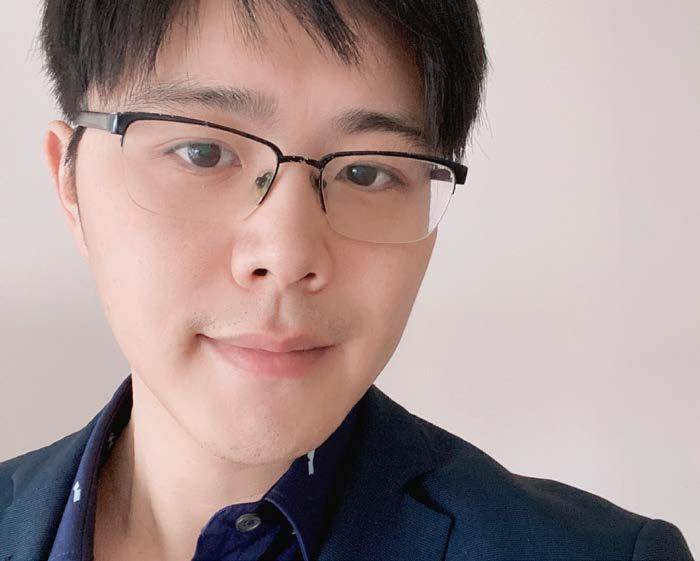
Jianing Yao is a director of desk quant of Structure Rate Trading (SRT) at RBC Capital Markets, working mainly on fixed income modeling, e.g., SABR model and its enhancement, various types of bond
derivatives, OTC/ Exchange relative value tools, and other desk apps to support trading decision-making, pricing and risk management. Before that, as a Ph.D. at Rutgers University, he specialized in the applications of Forward-Backward stochastic differential equations (FBSDE) in risk-averse optimization.
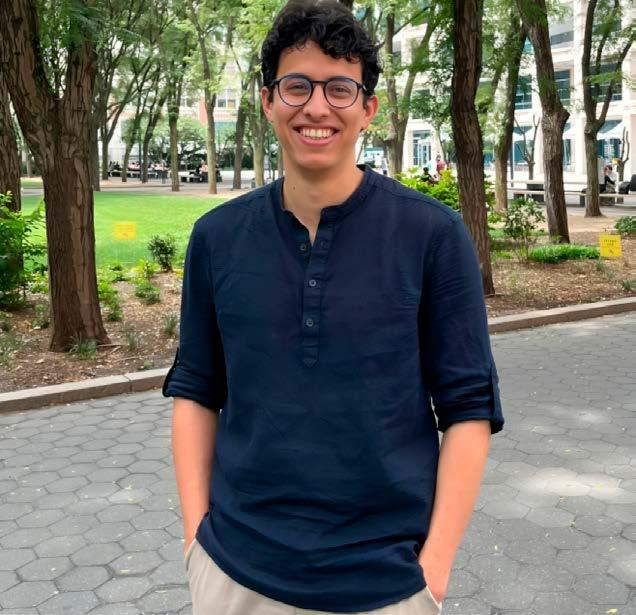
Abdessalam
Ed-dib joined the NYU Tandon School of Engineering in Fall 2024. He holds a Master of Engineering degree in Applied Mathematics from École Polytechnique Paris and a Master of Science in Mathematics, Machine
Learning, and Computer Vision from ENS Paris-Saclay.
His research interests lie at the intersection of Machine Learning and Information Geometry, with a special focus on applications in Dynamical Systems.
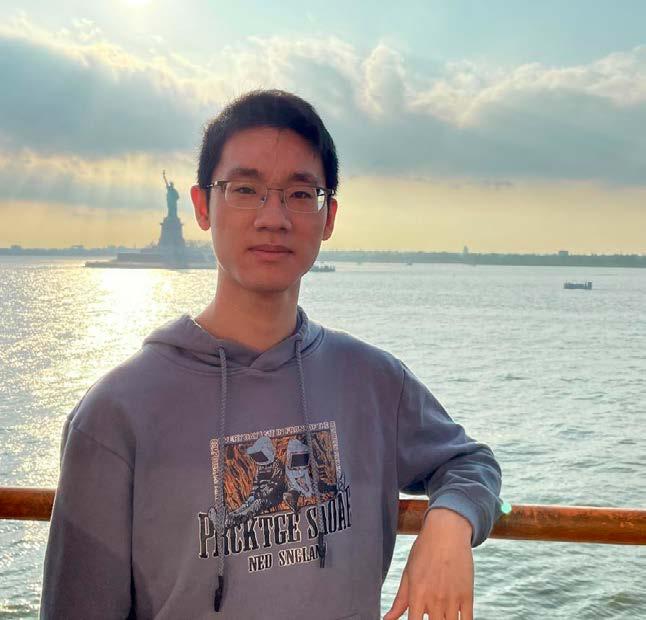
Models.
Yinbin Han is now working jointly with Renyuan Xu and Meisam Razaviyayn (of the University of Southern California). His research interests include Stochastic Control, Non-convex Optimization, Reinforcement Learning, and
Yinbin obtained his B.S. in Mathematics from the Chinese University of Hong Kong, Shenzhen, and efore coming to Brooklyn studied at USC.
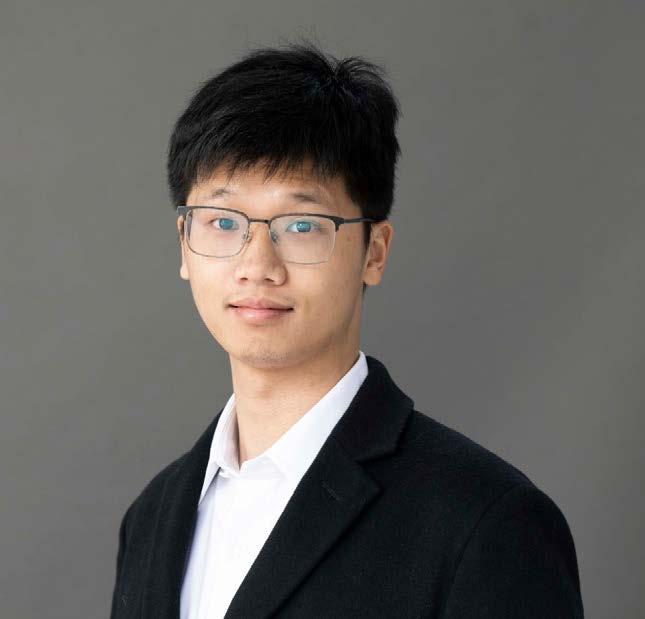
Yuxing Huang came to NYU Tandon for his doctoral studies in Fall 2024. Previously, he obtained an ingénieur degree (master’s level) in Applied Mathematics from École Polytechnique and a bachelor’s degree in Mathematics from Zhejiang
University. His research interests include Stochastic Control, Backward SDEs, Mean Field Games, and the Signature Method.
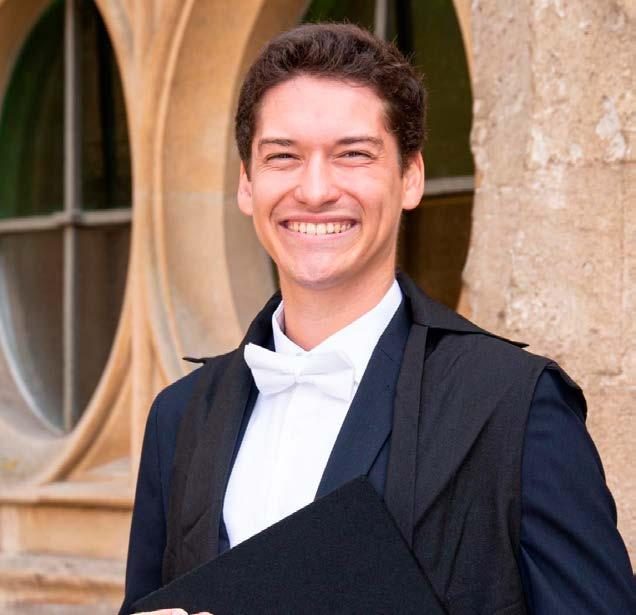
Mathieu Lise is a Ph.D. candidate in Electrical Engineering and a member of the Financial and Risk Engineering Department, advised by Chair Nizar Touzi. He writes: “I would like to focus my research on the mean-field games theory, which
consists in studying the equilibrium of a stochastic game with a large number of agents. I would like to apply this theory to Economics, Finance, and Social Science. Before joining NYU, I was a master’s student at the University of Oxford (MSc in Mathematical Sciences) where I grew an interest in Stochastic Analysis, Optimal Transport, and Limit Theorems in Probability. There, I wrote a dissertation on the supercooled Stefan problem and its connection with banking systemic risk. I also hold a master’s degree (the French ‘diplôme d’ingénieur’) from École Polytechnique, where I chose to specialize in Applied Mathematics and Engineering.
Julien Guyon, a Visiting Associate Professor in NYU Tandon’s Risk and Finance Engineering Department, has been named “Quant of the Year” by Risk, the leading financial risk management magazine. Guyon was recognized on November 26 at a ceremony in London.
The Risk Awards are the longest-running and most prestigious awards for firms and individuals involved in quantitative finance, risk transfer markets, and financial risk management.
Risk readers and contributors, who include quantitative analysts and financial engineers, voted on Guyon to receive the honor for his overall contributions to modern quantitative finance, in particular volatility modeling, as well as two important technical papers published in Risk in December 2023 (co-authored with with Scander Mustapha) and February 2024 (co-authored with Florian Bourgey). Using classical optimization techniques or modern deep learning tools, both articles shed new light on the joint S&P 500/VIX smile calibration problem, a conundrum sometimes referred to as the Holy Grail of volatility modeling, which had eluded quants for many years before Guyon cracked it in 2020.
Volatility is a key metric of financial markets. Guyon’s research on volatility models has brought many impactful results in addition to finding the first exact solution to the joint S&P 500/VIX smile calibration problem. These include the particle method for the calibration of local stochastic volatility models, now an industry standard (with Pierre Henry-Labordère); the so-called Bergomi-Guyon expansion, an analytical approximation of the implied volatility in generic stochastic volatility models (with Lorenzo Bergomi); and more recently the so-called Guyon-Lekeufack volatility model, a new pathdependent volatility model that has attracted a lot of attention both in the industry and in academia because Guyon and his co-author, Jordan Lekeufack, showed that the model, despite its simplicity, has a very large predictive power and captures many important stylized facts about the volatility of financial markets.
Guyon is a researcher at École nationale des ponts et chaussées in Paris, France, where he holds the BNP Paribas Chair Futures of Quantitative Finance, and a visiting associate professor in the Department of Finance and Risk Engineering at the NYU Tandon School of Engineering. He is also an adjunct professor in the Department of Mathematics at Columbia University. Before joining Ecole des Ponts, Guyon worked in the financial industry for 16 years, first in the Global Markets Quantitative Research team at Societe Generale in Paris (2006-2012), then as a senior quantitative analyst in the Quantitative Research group at Bloomberg L.P., New York (2012-2022). He was also previously an adjunct professor at the Courant Institute of Mathematical Sciences, NYU; at Baruch College, City University of New York; at Université Paris Diderot; and at École des Ponts.
Guyon now serves as an Associate Editor of Finance & Stochastics, SIAM Journal on Financial Mathematics, Quantitative Finance, and Journal of Dynamics and Games. He is also a Louis Bachelier Fellow. He received the Ecole des Ponts Best PhD thesis award in 2006 and co-authored the book Nonlinear Option Pricing (Chapman & Hall, 2014) with Pierre Henry-Labordère. He has published more than 25 articles in peer-reviewed journals and is a regular speaker at international conferences, both academic and professional. His main research interests include volatility and correlation modeling, option pricing, optimal transport, and numerical probabilistic methods. A big soccer fan, Guyon has also published articles on fairness in sports both in academic journals and in top-tier newspapers including the New York Times, Le Monde, and El País, and some of his suggestions for draws and tournament design have been adopted by FIFA and UEFA.
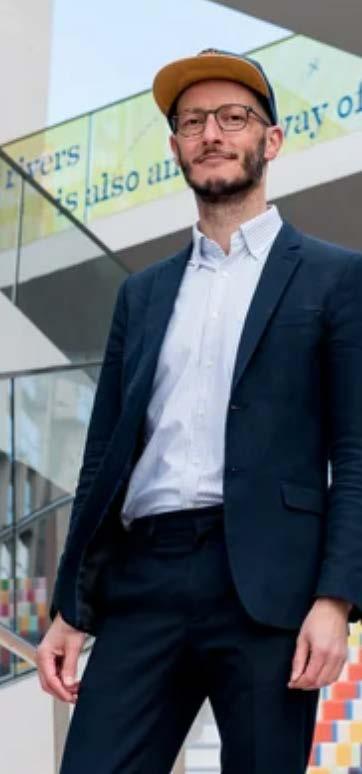
To relieve some much needed stress, FRE students organized a successful social event, hosting their first of what they hope will be an annual game night, on Thursday, November 21st. Approximately 50 students showed up for some friendly competition, playing chess, Uno, Jenga and various card games, while feasting on Monty’s delicious pizza. What better way to come together by taking a break from exams and interviewing? The FRE Department is looking forward to helping students continue to organize additional fun-filled events next year.
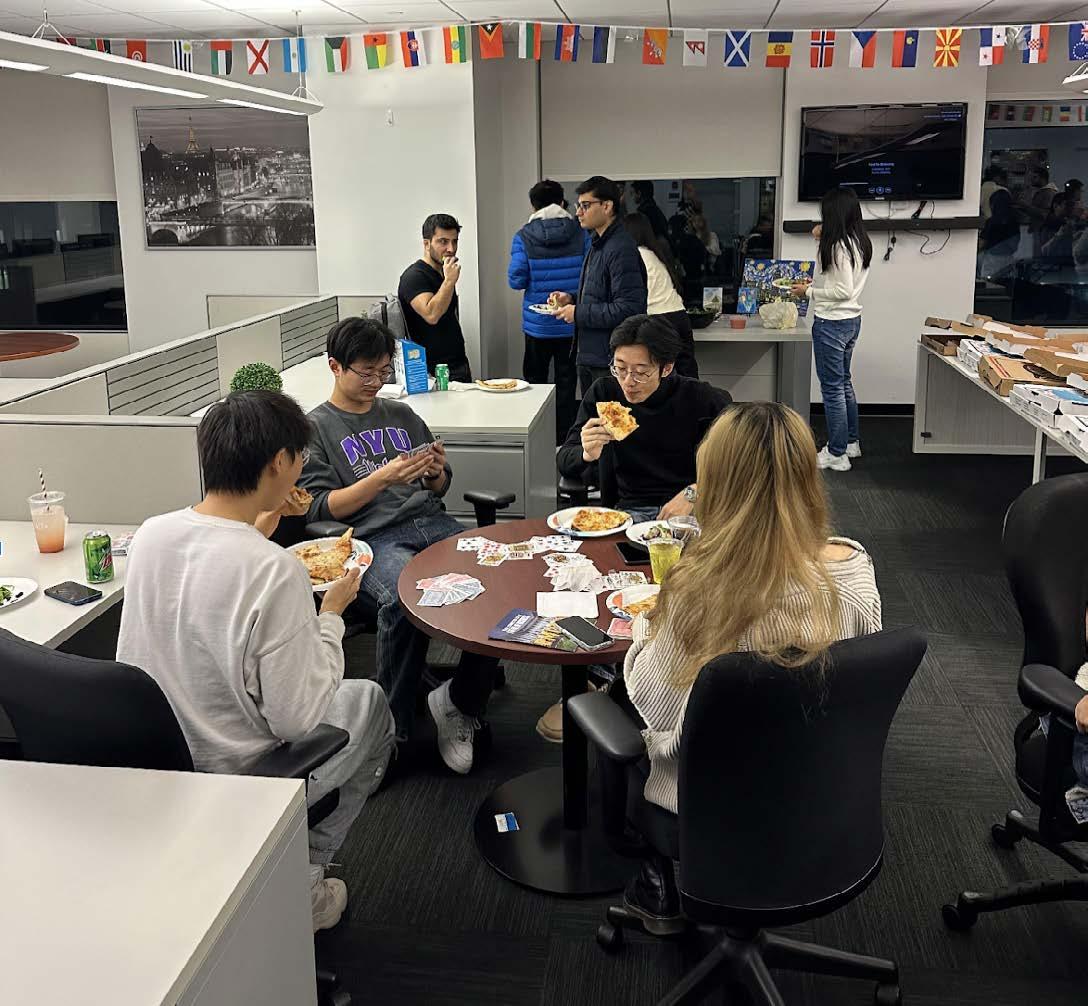
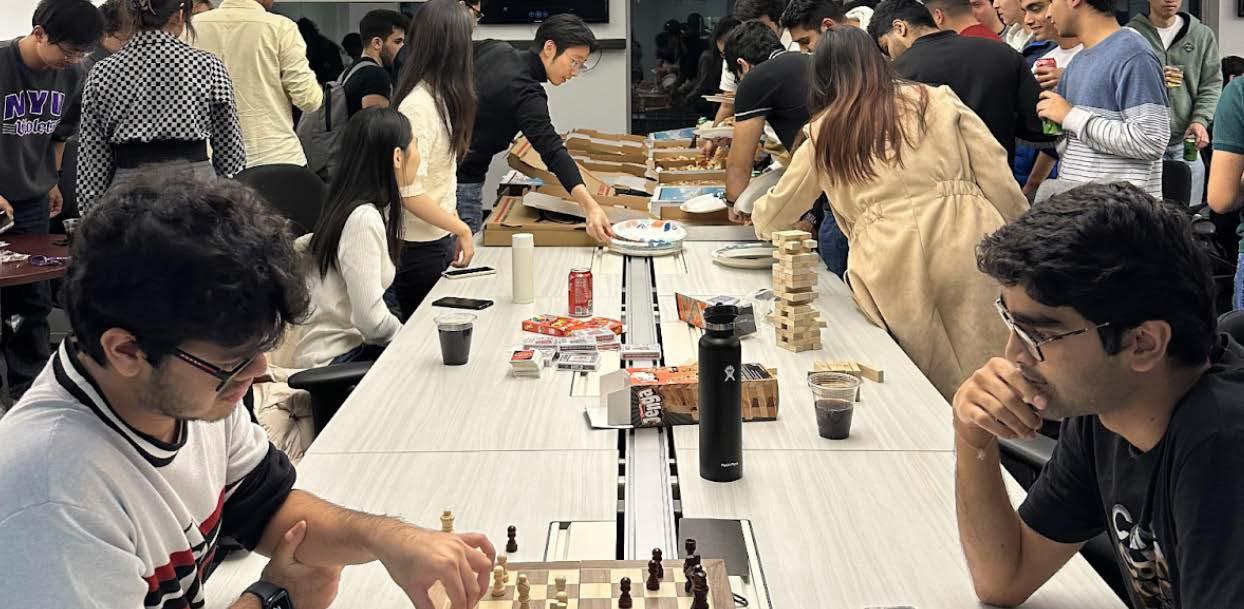

THE LATEST SPEAKERS IN THE BQE SEMINAR SERIES HAILED FROM RIGHT HERE IN BROOKLYN TO HALFWAY AROUND THE GLOBE, AND THE TOPICS DISCUSSED WERE JUST AS WIDE-RANGING.
JANUARY 29 Peter Carr Seminar Series
Anran Hu, Columbia University
JANUARY 29 Peter Carr Seminar Series
Yu Yu, Blackrock
FEBRUARY 5 Columbia-NYU Series
Erhan Bayraktar, University of Michigan
FEBRUARY 5 Columbia-NYU Series
Mathieu Lauriere, NYU Shanghai
FEBRUARY 13 Department Special Seminar
David Shimko, NYU Tandon
FEBRUARY 13 Department Special Seminar
Julio Backhoff, University of Vienna
FEBRUARY 26
Department Special Seminar
Giorgio Ferrari, Bielefeld University
FEBRUARY 26 Department Special Seminar
Emma Hubert, Princeton University
MARCH 5 Columbia-NYU Series
Xin Guo, UC Berkeley
MARCH 5 Columbia-NYU Series
Agostino Caponi, Columbia University
MARCH 5 Columbia-NYU Series
Rama Cont, University of Oxford
MARCH 12 Department Special Seminar
Ibrahim Ekren, University of Michigan
MARCH 19 Department Special Seminar
Thibaut Mastrolia, UC Berkeley
MARCH 19 Department Special Seminar
Valentin Tissot-Daguette, Bloomberg
APRIL 2
APRIL 2
APRIL 2
APRIL 9
APRIL 9
APRIL 16
APRIL 16
APRIL 23
APRIL 23
Columbia-NYU Series
Thaleia Zariphopoulou, UT Austin
Columbia-NYU Series
Quanyan Zhu, NYU
Columbia-NYU Series
Huyen Pham, Ecole Polytechnique
Peter Carr Seminar Series
Petter Kolm, NYU Courant
Peter Carr Seminar Series
Sebastien Bossu, UNC Charlotte
Department Special Seminar
Ronnie Sircar, Princeton University
Department Special Seminar
Ruimeng Hu, The University of California, Santa Barbara
Department Special Seminar
David Siska, University of Edinburgh
Department Special Seminar
Haoyang Cao, Johns Hopkins University



